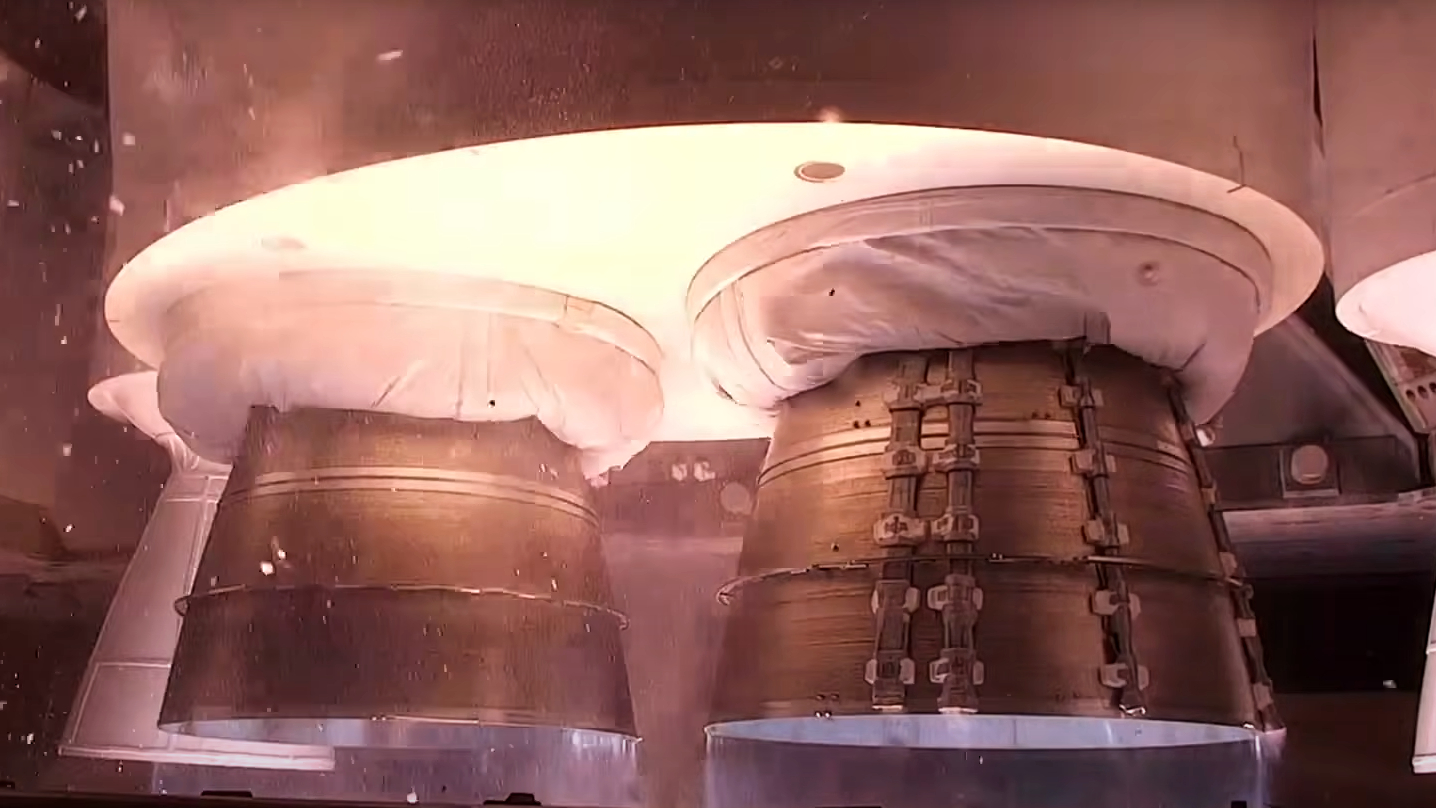VP Kamala Harris pledges new 'rules framework' for commercial space
The chair of the National Space Council says the next meeting will convene Sept. 9 to hammer out the details.
Breaking space news, the latest updates on rocket launches, skywatching events and more!
You are now subscribed
Your newsletter sign-up was successful
Want to add more newsletters?
Changes are coming for the commercial space sector.
Commercial space will get a "new rules framework" in the near future, the Biden-Harris administration pledged Friday (Aug. 12) at a NASA visitor center.
U.S. Vice President Kamala Harris, also the chair of the National Space Council, said the council will convene again on Sept. 9 to discuss a partnership between regulatory agencies and the private sector.
"This is a convening, with the preparation for a working meeting, is my point," Harris said in livestreamed remarks from the Chabot Space & Science Center in Oakland, California.
While providing few details about what regulations she wanted to look at, Harris said the rules are "just simply outdated. They were written for a space industry of the last century."
Her remarks came shortly after completing a tour of commercial space companies in the complex, which also hosts visitors to advertise the nearby NASA Ames Research Center.
Related: NASA, private companies count on market demand for future space stations after ISS
Breaking space news, the latest updates on rocket launches, skywatching events and more!
The regulations-focused announcement comes in the days after the Federal Communications Commission (FCC) pledged to examine in-space manufacturing's potential to address (or add to space debris), and ways of regulating that.
Simultaneously, NASA is in the early stages of developing commercial space stations, and discussed progress at a conference last week with the various partners. NASA selected Axiom Space to create the first commercially developed module for the ISS, and three other companies are working on commercial space stations after a December 2021 NASA announcement regarding commercial LEO destinations: Nanoracks, Northrop Grumman, and Blue Origin, which partnered with Sierra Space.
Private space tourism and private commercial missions are also active, with recent launches including Blue Origin's sixth human spaceflight last week and the first research-focused mission by Axiom Space, called Ax-1, in April.
Related: See amazing photos of SpaceX's Ax-1 private astronaut launch and mission
On the regulatory side, where Biden-Harris will focus first is not clear. Various space activities are governed by a range of actors, including (but not limited to) the FCC for communications, the Federal Aviation Administration for suborbital spaceflights for tourists and NASA for orbital space research.
International space law itself is complex, stemming from the Outer Space Treaty that governs behavior for the countries who sign on to it and by doing so, represent the private launching companies of their nation.
The Biden administration's last major action regarding space took place just days ago, when the U.S. president signed a bill that authorized NASA to extend U.S. participation in the International Space Station to 2030 to in large part, support a growing commercial space sector in low-Earth orbit.
I will convene leaders from across our Administration for our second National Space Council meeting on September 9. This meeting will build on our whole-of-government approach to ensure space activities create opportunities that benefit the American people and the world.August 12, 2022
At least some other countries will need to sign on to the extension, however, and that won't include Russia as the country plans to withdraw at some point after 2024 to pour resources into an independent Russian space station.
Harris did not refer to the Biden signing NASA's authorization bill into law in her speech, but did point to the forthcoming Artemis 1 launch to the moon (scheduled for Aug. 29) as something she is paying attention to. "We're very excited about that," she said, repeating the pledge that the Artemis program will "will return American astronauts to the moon, including the first woman and person of color."
Related: NASA's Artemis 1 moon mission explained in photos
Harris' first meeting chairing the National Space Council occurred on Dec. 1, 2021, during which the vice-president appeared to emphasize climate change as a focus of the Biden administration.
"In this new era, we must see all the ways in which space can benefit Earth. We must see all the ways in which space can benefit the people of our nation and of all humanity," Harris said. "This perspective is central to our work as a council because, while exploration of space defined the 20th century, the opportunity of space must guide our work in the 21st."
Follow Elizabeth Howell on Twitter @howellspace. Follow us on Twitter @Spacedotcom or Facebook.

Elizabeth Howell (she/her), Ph.D., was a staff writer in the spaceflight channel between 2022 and 2024 specializing in Canadian space news. She was contributing writer for Space.com for 10 years from 2012 to 2024. Elizabeth's reporting includes multiple exclusives with the White House, leading world coverage about a lost-and-found space tomato on the International Space Station, witnessing five human spaceflight launches on two continents, flying parabolic, working inside a spacesuit, and participating in a simulated Mars mission. Her latest book, "Why Am I Taller?" (ECW Press, 2022) is co-written with astronaut Dave Williams.
